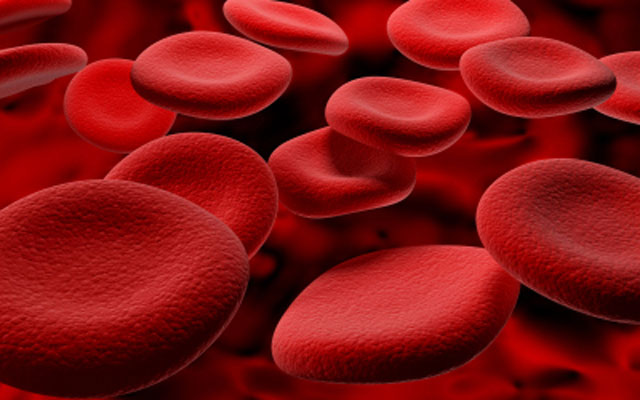Blood Incompatibility Needle
 Learn more about Blood Incompatibility
Learn more about Blood Incompatibility
Blood Incompatibility Needle
Blood incompatibility is a condition that progresses through the RH positive and RH negative (presence or absence of RH antigen) values of the mother and father's blood group. The RH incompatibility found between the mother and the baby in the womb during pregnancy (the mother is RH negative and the baby is RH positive) can cause important problems for the baby's Decency.
So what is RH? RH is an antigen found in red blood cells. Some people have this antigen in their blood, and some people don't have it in their blood. For those who have this antgen in their blood, the RH negative designation is used for those who do not have RH positive. The majority of people up to 85 percent are RH positive and 15 percent are RH negative.
We all get our RH from our parents through our genes. The concept of blood incompatibility is a problem that can arise during pregnancy. In this process, if the mother is RH negative and the baby in the womb is RH positive, there is a blood incompatibility. In this case, it means that your baby has received the Rh transition from his father, who is positive. However, it is possible to prevent the health problems that blood incompatibility may cause with simple treatment methods.
Parents Baby Precaution
RH+RH+ No RH+
RH- RH- RH- No
RH+RH- RH+ or RH- None
RH- RH+ RH+ or RH- Blood incompatibility needle
Blood Incompatibility Usually Does Not Harm the First Baby
If there is a RH incompatibility between the mother and the baby, often the first baby Decays unharmed. This is because during pregnancy, which is an ongoing RH-positive baby, the mother produces antibodies to the amount of blood passing from the baby to the mother. These newly produced antibodies are short-term antibodies that we call immunoglobulin M, and because they are large in size, they cannot pass through the placenta, so they cannot harm the baby. But these antibodies disappear after a certain time, and antibodies are formed that we call immunoglobulin G, which provide permanent immunity, and these antibodies are small in size and can pass through the placenta. These antibodies can remain in the mother's bloodstream for years. Therefore, as soon as the mother becomes pregnant with an RH-positive baby, these antibodies pass through the placenta and attack and damage the baby's blood cells.
If you have experienced one of the following conditions, your baby's blood may have passed into your blood and there may be a problem:
• If you have given birth before,
• If an amniocentesis test has been performed,
• If the CVS test has been performed,
• If you have had vaginal bleeding during pregnancy,
* If you have been injured in the abdomen during pregnancy,
• If you have had a miscarriage before,
• If you have had an ectopic pregnancy problem,
• If you have had an abortion.
There is no risk if a blood incompatibility needle was given before or immediately after these procedures were performed.
How About Blood Incompatibility?
After the RH-negative mother gives birth to her first RH-positive baby, the mother produces antibodies. Therefore, if she is pregnant with a second RH-positive baby, these antibodies cross the placenta and reach the baby. After the antibodies pass to the baby, they begin to kill the red blood cells that are in the baby's blood and take on the task of transporting oxygen. As a result of this attack, the baby's heartbeat may stop in the womb, or the picture we call 'hydrops', which leads to widespread damage to the baby, can be seen.
Blood Incompatibility Test
If the mother is RH negative and the father is RH positive, the mother is given an 'indirect coombs' test. If the result of this test is positive, then there is a risk. At this point, strict follow-up is required, since the amount of positivity is directly proportional to the amount of impact on the baby. If this test is negative, 3 of the pregnancy for preventive purposes to the mother. a blood incompatibility injection is performed in the trimester and after childbirth.
Blood Incompatibility Needle
In the case of blood incompatibility, a blood incompatibility needle is made. As we have already mentioned, there is no significant risk for the first child. However, in order to avoid the risk of later births, a blood incompatibility injection is given to the mother at the 28th week of pregnancy. When the baby is born, the RH value of the baby is checked. If it is negative, the mother does not need to be given a second blood incompatibility injection. If the baby's blood type turns out to be RH positive, the mother is given a second blood incompatibility injection within the first 72 hours after birth.
On this topic, the most important issue is this: if the mother is Rhesus negative and the father is Rh positive, the mother is low, curettage, bleeding during pregnancy, or the above-mentioned initiatives to build, this operation a blood incompatibility before injection. And even more importantly, every pregnant woman with RH incompatibility should have 28 weeks of pregnancy. during the week, the blood incompatibility is that he has his injection.
 Learn more about Blood Incompatibility
Learn more about Blood Incompatibility